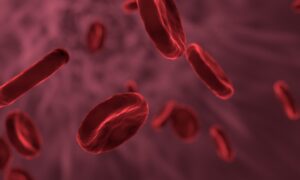Hemoglobin is a protein molecule present in red blood cells that transports oxygen from the lungs to the tissues of the body. Low hemoglobin levels, often known as anemia, may be caused by a variety of factors and result in a variety of symptoms and health problems. In this post, we’ll look at what is it, what causes it, and how to cure it.
What Exactly Is Low Hemoglobin?
This condition occurs when hemoglobin levels in the blood fall below normal. These levels vary by age and gender, however, for adult males, a hemoglobin level less than 13.5 g/dL is considered low, while for adult women, a level less than 12.0 g/dL is considered low.
This may result in a variety of symptoms such as weariness, weakness, shortness of breath, and dizziness. It may cause consequences such as heart failure, stroke, and organ damage in extreme instances.

What Is the Root Cause?
A variety of reasons may contribute to low hemoglobin levels, including:
- Iron deficiency: Because iron is required for the formation of hemoglobin, low iron levels in the body may result in low hemoglobin levels.
- Vitamin deficiency: Vitamins B12 and folate are also required for hemoglobin synthesis. A lack of any of these vitamins might result in low hemoglobin levels.
- Chronic Kidney Disease: The kidneys generate erythropoietin, a hormone that increases the creation of red blood cells. Chronic renal illness may cause this hormone to be deficient, resulting in low hemoglobin levels.
- Bleeding: Bleeding, whether from an accident or a medical condition, may result in low hemoglobin levels.
- Chronic Diseases: Chronic conditions, such as cancer, autoimmune disorders, and inflammatory bowel disease, may interfere with hemoglobin synthesis and result in low levels.
How To Identify?
A complete blood count (CBC) blood test may be used to determine low hemoglobin levels. The CBC tests the blood for red blood cells, white blood cells, and platelets. Anemia is often indicated by a low hemoglobin level.
Is Its Treatment Possible?
Low hemoglobin therapy will be determined by the underlying reason. Among the potential therapies are:
- Iron Supplements: Iron supplements may be administered to assist boost iron levels and enhance hemoglobin production if the cause is a shortage in iron.
- Vitamin Supplements: If low it is caused by a lack of vitamins B12 or folate, these vitamins may be supplemented to assist boost hemoglobin synthesis.
- Erythropoietin Injections: Erythropoietin injections may be recommended to promote red blood cell formation in instances when it is caused by chronic renal disease.
- Blood Transfusion: In extreme situations, a blood transfusion may be required to swiftly boost hemoglobin levels.
- Lifestyle adjustments: Certain lifestyle adjustments, such as increasing iron-rich foods in your diet or limiting alcohol use, may be suggested to help avoid low hemoglobin levels.
Are There Any Consequences?
Low hemoglobin, if left untreated, may lead to issues such as:
- Heart Failure: It may make the heart work harder to provide oxygen to the body’s tissues, resulting in heart failure.
- Stroke: It raises the risk of stroke by decreasing the quantity of oxygen accessible to the brain.
- Organ Damage: It may harm organs such as the kidneys, liver, and lungs.
- Have you ever faced health issues from low hemoglobin levels?
If you enjoyed this blog post, share it with your friends!
